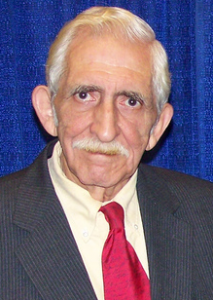by Joseph P. Tartaro | Executive Editor
Most of the established media in the US thinks that what they call “gun buybacks” are such a wonderful idea.
Actually, they should more properly be called “gun buy-ups,” because the people buying them with cash or merchandise gift cards never owned the guns before they got someone to turn them in.
Some in the media actually question the value of gun buy-ups as a crime or violence fighting tool.
They see municipalities, particularly mayors who wish to appear tough on crime, accomplishing little with such programs, which are usually much publicized.
Gun owners in general take a dim view of the gun buy-ups because they view them as yet one more public campaign to stigmatize guns, and as a way of destroying guns by giving people little compensation for their property.
Other complaints focus on the “no questions asked” policy that actually hinders serious criminal investigations and the ability of some in the criminal profession to get rid of evidentiary guns while getting money to acquire new armament on the black market.
What is curious about these gun buy-ups is that they would seem to violate the American Civil Liberties Union’s interpretation of the First Amendment’s separation of church and state, because many of the turnin points for the guns are churches of various denominations.
What is worse, agents of the federal government, as well as many city government officials actually seek out the help of churches as venues for the buy-up schemes. Some newspapers and television stations have made much of Justice Department officials pleading for help from churches in promoting the buy-ups.
I was reminded of all this again recently as I adrove around the City of Buffalo, NY, and saw billboards in English or in Spanish promoting the latest gun buy-up at various city churches on Aug. 16. I now know how to say “No questions asked” in Spanish and English.
The event was followed by traditional newspaper, radio and television news coverage, which actually tended to avoid most of the usual flowing praise.
The report in the Buffalo News the next day actually put some useful purposes of the buy-up in perspective without gushing over how it helped fight criminal misuse of firearms. And it quoted some city officials and local police with some sensible comments.
Here are some examples, “The gun that an elderly widow turned in at St. John Baptist Church could have been among the most dangerous of the hundreds collected Saturday across Buffalo,” the Buffalo News report began.
“She told Mike Pinnavaia, a firearms instructor for the Buffalo Police Department, that the 12-gauge shotgun belonged to her late husband and she wanted to keep it out of the hands of her grandchildren.” The woman was shocked by the news that the gun was loaded.
“She was shaking,” Pinnavaia said, according to the News.
“That’s maybe an example where a child’s life was saved,” the officer noted.
That wasn’t the only gun that was loaded. Several were, and the people who surrendered them apparently didn’t know how to handle firearms.
This was the seventh “No Questions Asked” gun buy-up program promoted by Mayor Byron W. Brown, who called this most recent effort a “real success.” “During a news conference Saturday evening inside the firearms range at Buffalo Police Headquarters, Brown announced that 840 guns were recovered—the second-highest total in the program’s history. The record remains 878 guns in 2007; last year’s total was 760,” the newspaper reported.
Police Commissioner Daniel Derenda said 258 handguns were recovered and all but about a dozen were illegal. In other words, about a dozen were legal handguns the city bought up while more than 240 were the kinds of guns the police had hoped to take “off the street.” Another interesting fact: About 500 of the collected guns were in working condition, which suggests that about a third were actually inoperable.
But even after the program was over, the police admitted that they will never know what good was really accomplished by the buy-up.
“I think that with today’s efforts we possibly saved a life,” Derenda said. “I’ll never be able to prove it [but] getting this number of guns off the street at one time has to have an effect.” People were given pre-paid credit cards ranging in value from $10 for a non-working or antique gun, as well as BB and pellet guns, to $100 for what Gov. Andrew Cuomo likes to call “assault weapons.” Six churches in the city served as collection sites that were staffed by police department personnel.
For some people, the no questions asked buy-up may help solve a household problem. Mayor Brown claimed that a lot of people said, “Thanks for doing this; we just wanted to get the guns out of the house.’ ” But critics of such programs still say it doesn’t get the guns being used to commit crimes. And according to the police department’s statistics, shootings account for the majority of homicides annually.
Police at the collection sites said some BB and pellet guns as well as objects that look like guns are dead ringers for more serious firearms and could be mistaken as such if aimed at a law enforcement officer.
According to the News, a man who stopped by one church with some of his late father’s belongings provided Pinnavaia with a perfect example: A small box contained a shiny object that looked just like a gun but turned out to be a lighter. Pinnavaia picked up a real .22-caliber handgun of roughly the same size and held them side by side.
“One’s a lighter,” Pinnavaia said.
“One will kill you. But both will get you killed.” The gun turn-in may have been a helpful route for some honest folks, but as the police said, “There’s no way of ever knowing for sure.” Someday, however, perhaps a federal judge will tell me why such programs do not violate the Constitutional separation of church and state.




